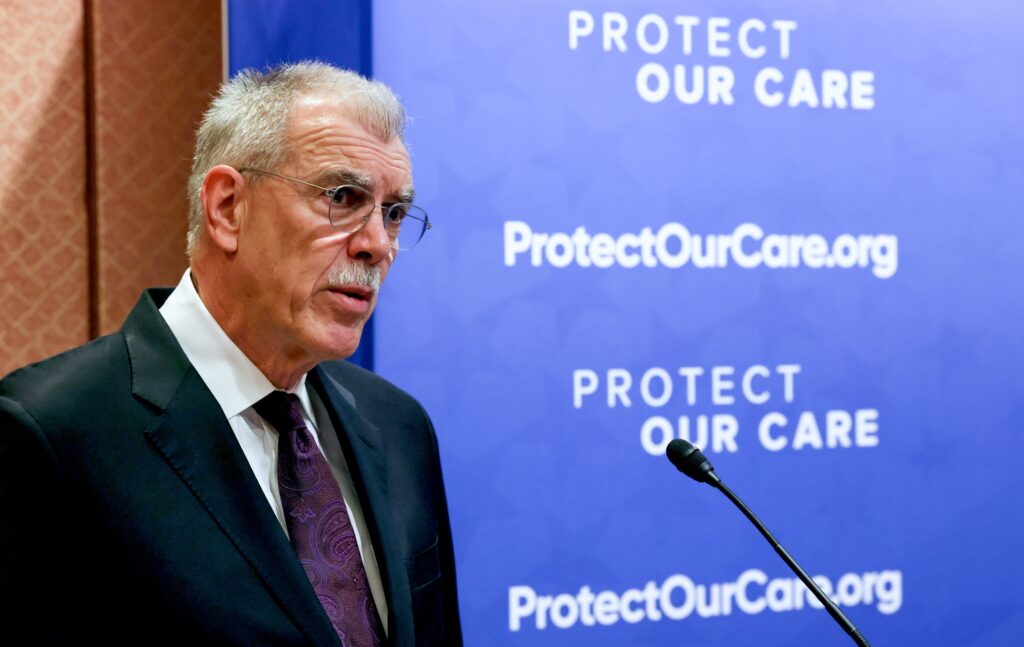Watch the Panel Discussions Here.
Washington, D.C. — Yesterday, Protect Our Care was joined by Former Solicitor General of the United States Don Verrilli, Senator Amy Klobuchar (D-MN), and leading legal, economic, and health experts for an in-depth discussion of three key legal battles that threaten Americans’ health care. Ultra-conservative groups and big drug companies are suing to block Americans’ access to quality, affordable health care. Ongoing litigation threatens to repeal the Affordable Care Act requirement that insurers cover preventive services without cost sharing, to block Medicare from negotiating lower drug prices, and to throw our drug approval system into chaos by overturning the FDA’s approvals of mifepristone.
“First, don’t underestimate the determination and creativity of your adversaries, and don’t underestimate the attractiveness of the arguments and second, vigorous public engagement is absolutely vital,” said Former Solicitor General Don Verrilli. “These lessons are even more important now because arguments of the challenges that we’re going to be talking about today are going to appeal to some of the justices. It’s going to be vitally important to really push to take those arguments seriously. Figure out the most powerful legal responses and also engage in the same sort of effort to help the public understand just how misconceived the other side’s approach to the statute and how it works and just how horrible the consequences will be for millions of Americans if they succeed in their endeavors.”
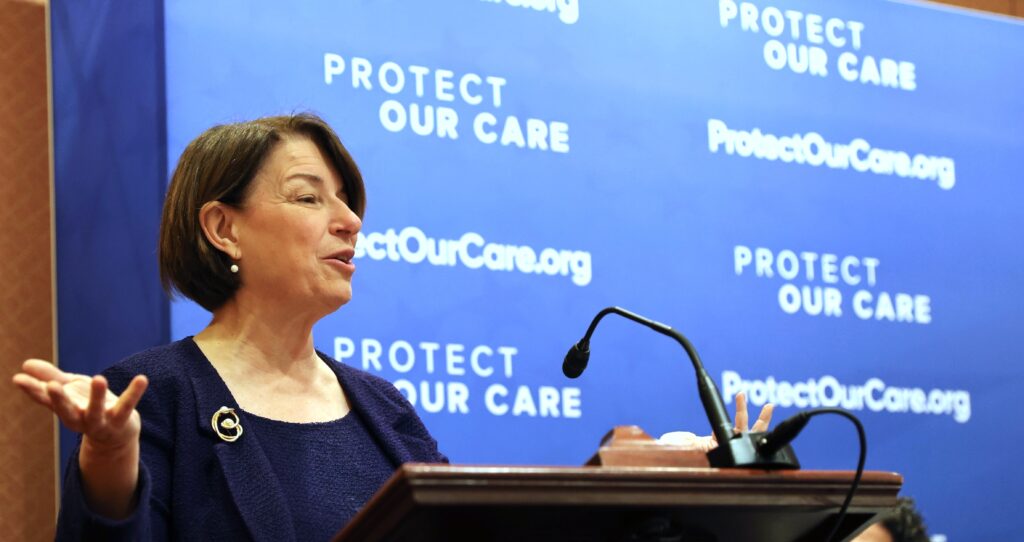
“Americans have long paid the highest prices in the world for prescription medications and a lot of it has to do with the sweetheart deal that was written into a 2003 law,” said Senator Amy Klobuchar (D-MN). “When something’s part of our law, that means Congress can change it – no matter what the pharmaceutical companies say. It’s not just about those numbers, it’s about the people. That’s why it’s so unacceptable and why we pushed so hard in the Inflation Reduction Act to get drug prices negotiated.”

“Under the leadership of President Biden, Vice President Harris, and Democrats in Congress, our country has made enormous progress in lowering health care and prescription drug costs, enrolling millions more Americans in affordable insurance coverage, and ensuring that coverage includes the lifesaving services people need,” said Protect Our Care Chair Leslie Dach. “But much of this progress is at risk because when opponents of affordable health care can’t get their way in Congress, they take their policy disputes to the courts to roll back progress. It’s important that Americans, their representatives in Congress, and advocates for affordable health care understand what is at stake for access to quality, affordable health care as ultra-conservative interest groups and corporations seek to roll back progress in the courts.”
Threats to Preventive Health Care (Braidwood v. Becerra)
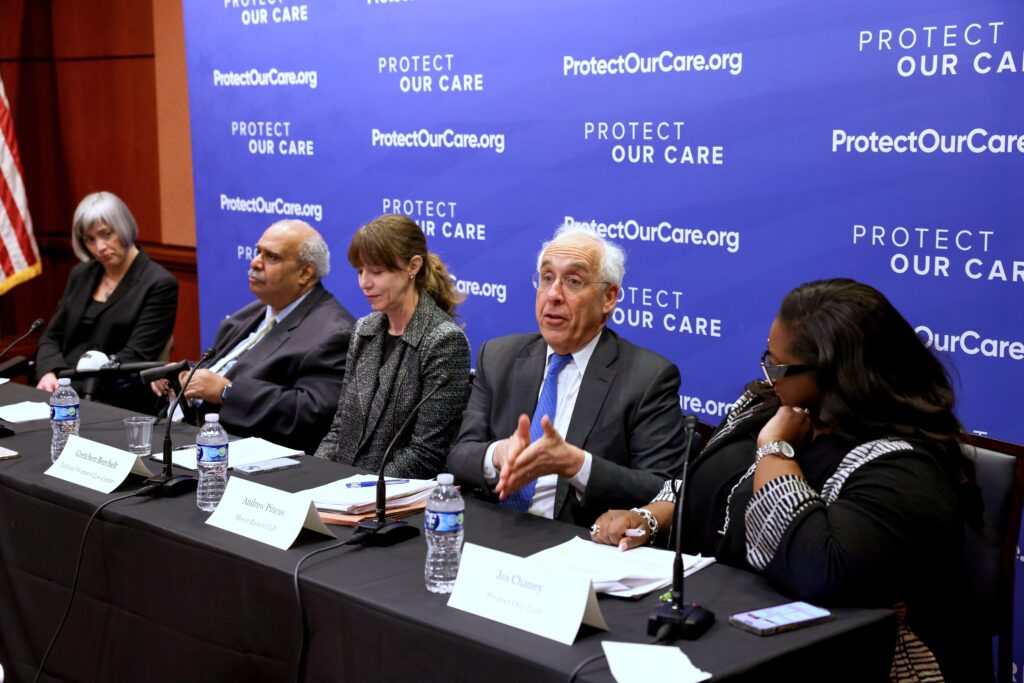
“If you are low income, a dollar to five dollars of cost-sharing may mean you won’t get screened at all because it often is the amount of money you need to get to work or for your kids to have lunch,” said Dr. Georges Benjamin, Executive Director of the American Public Health Association. “When the ACA went into effect, there was a dramatic increase in people utilizing preventive health services. We also know that should this go away there’s a lot of evidence – both by experience and by survey – that the insurance companies and employers who are doing employer-based coverage will reimpose cost sharing.”
Read our fact sheet on Braidwood v. Becerra here.
Threats to Lower Drug Costs (Medicare Drug Price Negotiation Cases)
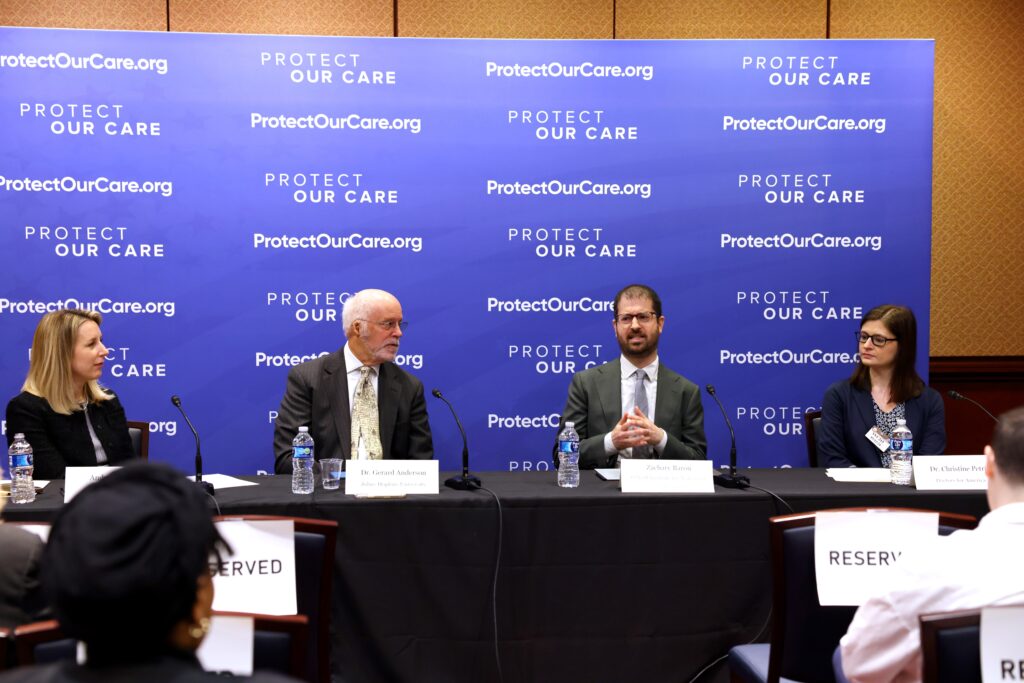
“We’re not talking about an antibiotic that they’re going to take for a week, we’re talking about life-saving drugs that are going to keep them alive for several decades and when my patients don’t take their medications, their health declines,” said Dr. Christine Petrin, Board Chair of Doctors for America. “I have had difficulty convincing my patients to start taking these medications because of the cost. It’s really frustrating to go to medical school, study pharmacology and physiology, and read all these journal articles about how great these drugs are, and then not actually be able to use them because they’re not accessible to my patients. It’s like trying to practice medicine with my hands tied behind my back.”
Read our fact sheet on the Medicare Drug Price Negotiation cases here.
Threats to Reproductive Health Care and the Drug Approval System (Alliance for Hippocratic Medicine v. FDA)
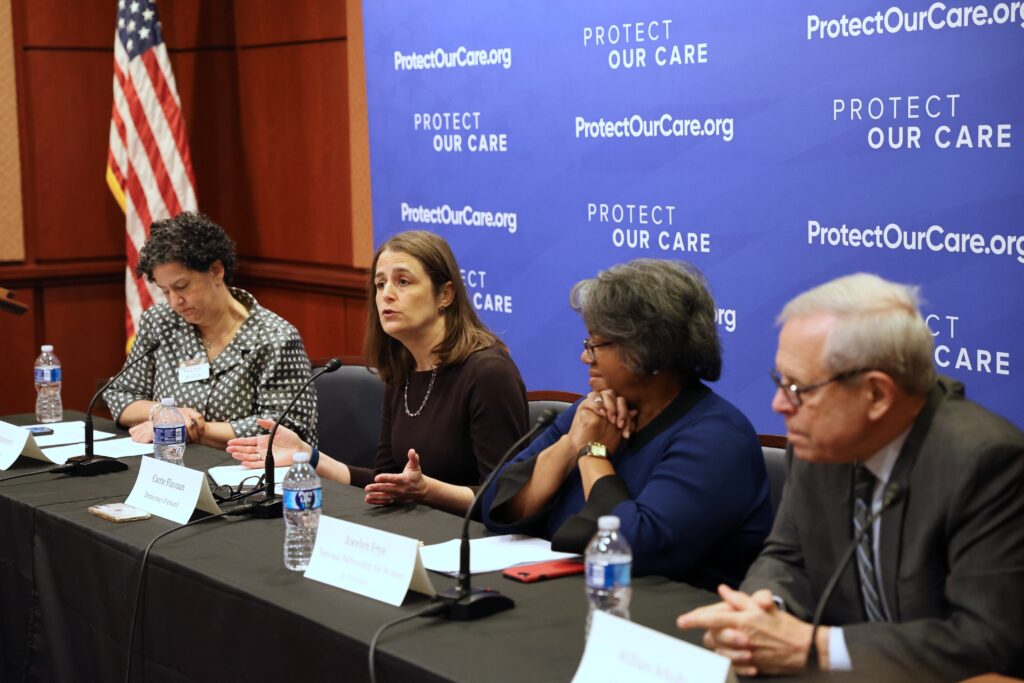
“One of the reasons why Americans across the country should be concerned about the potential outcome of this case is the overturning of an FDA decision and the effects on the approval process,” said William Schultz, Partner at Zuckerman Spaeder, and former General Counsel for the Department of Health and Human Services. “This can really diminish the confidence that patients, doctors, and health professionals have in drugs approved by the FDA. The inevitable result is it’s going to back up the process. They will require more studies. They will hesitate to approve improvements to drug labels. It will be slower in making these decisions, and the consequences of that are going to be patient lives – you’re talking about life-saving drugs.”
Read our fact sheet on Alliance for Hippocratic Medicine v. FDA here.


